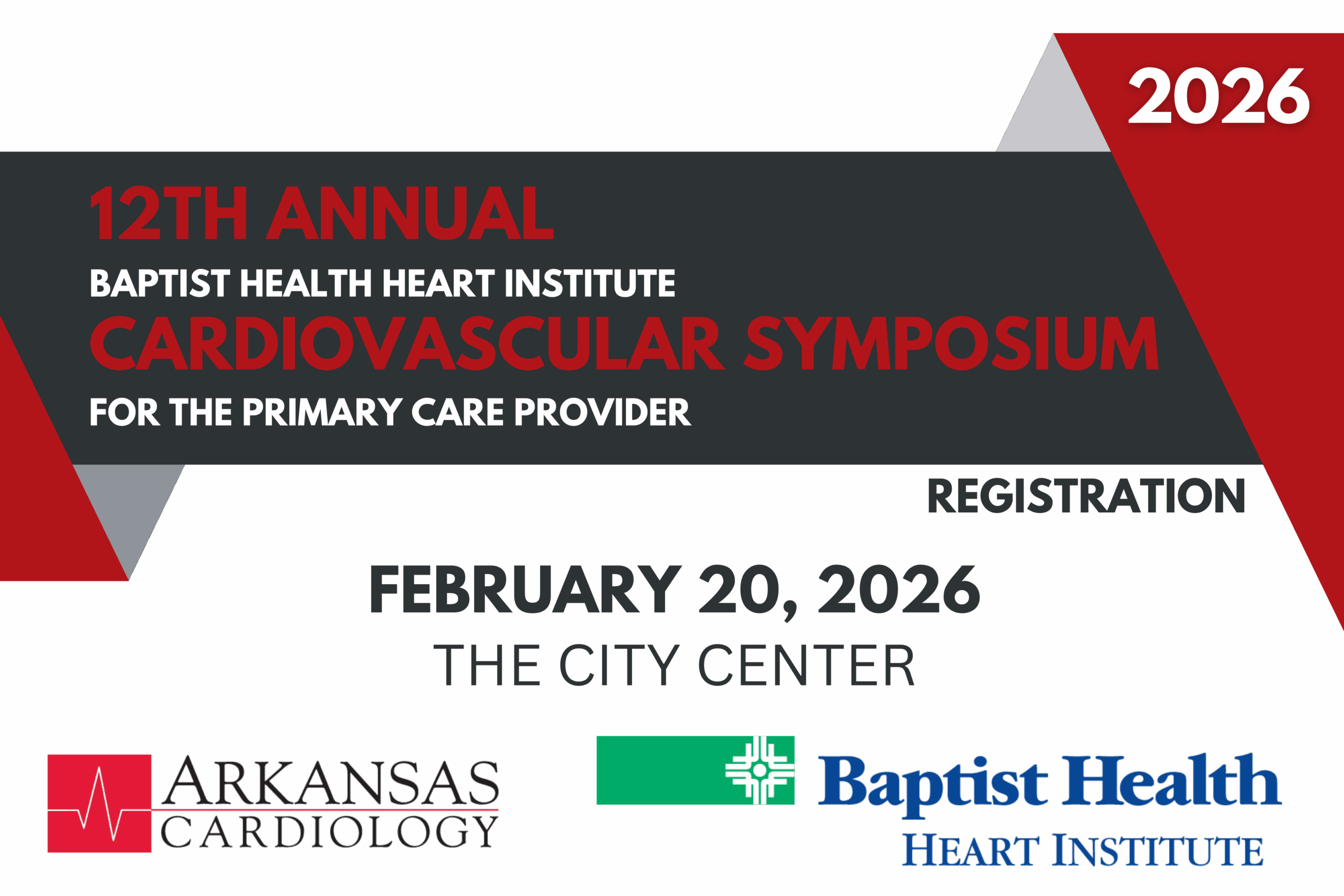
Arkansas Cardiology Symposium
Registration Form
Thank you for your interest in attending the 12th Annual BHHI Cardiovascular Symposium for the PCP.
Please complete the registration form below. Fields marked with an asterisk (*) are required.

Registration Form
Thank you for your interest in attending the 12th Annual BHHI Cardiovascular Symposium for the PCP.
Please complete the registration form below. Fields marked with an asterisk (*) are required.